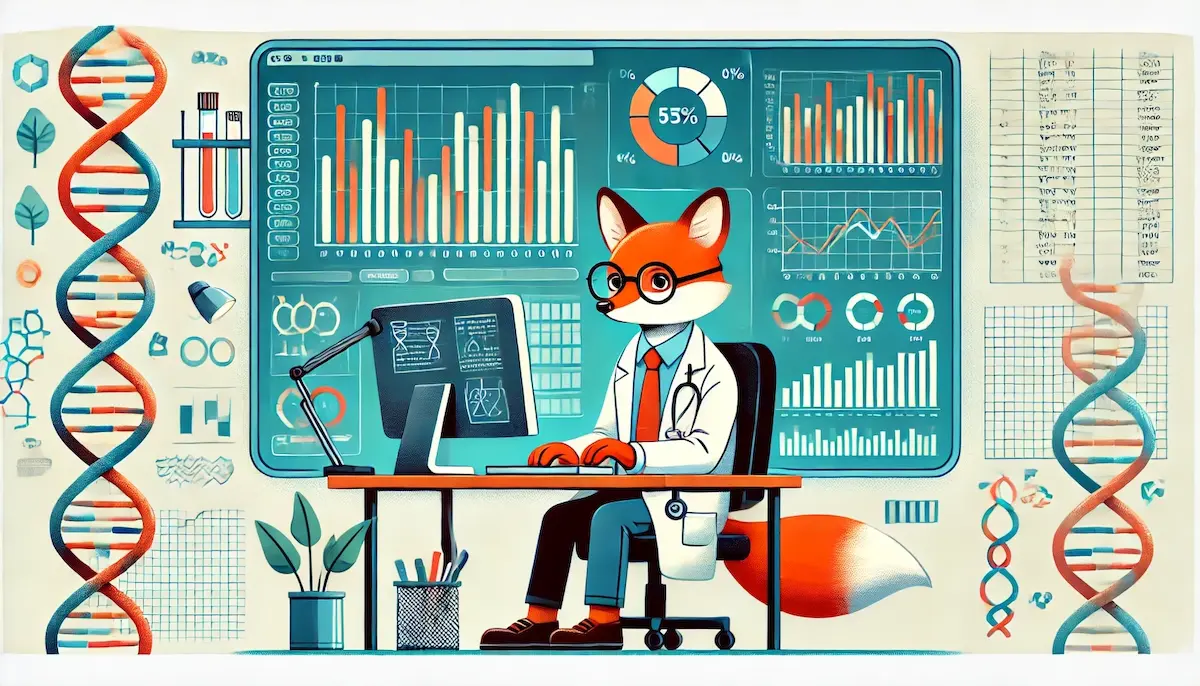Genomic data analysis is a revolutionary field that involves examining an organism’s complete set of DNA, including all its genes. This analysis helps researchers and healthcare professionals understand genetic contributions to health, disease, and traits. By leveraging genomic data, we can make significant advancements in personalized medicine, disease prevention, and biological research. Let’s explore what genomic data analysis entails and why it’s crucial for modern science and healthcare.
What is Genomic Data Analysis?
Genomic data analysis involves the systematic study of genetic material using various bioinformatics tools and techniques. This includes sequencing DNA, identifying genetic variants, and interpreting their significance. The process helps in understanding genetic structure, function, evolution, and the role of genes in health and disease.
Why is Genomic Data Analysis Important?
Genomic data analysis offers numerous benefits that are essential for advancing medical and biological sciences. Here are some key reasons why it’s important:
Personalized Medicine
Genomic data analysis allows for the development of personalized medicine, where treatments and medications are tailored to an individual’s genetic makeup. This leads to more effective and targeted therapies with fewer side effects.
Disease Prevention and Diagnosis
By identifying genetic variants associated with diseases, genomic data analysis helps in early diagnosis and prevention. This enables proactive measures to be taken, reducing the risk of disease development.
Understanding Genetic Disorders
Genomic data analysis provides insights into the genetic basis of inherited disorders. This helps in developing better diagnostic tools, treatments, and genetic counseling for affected individuals and their families.
Drug Development
Pharmaceutical companies use genomic data to identify new drug targets and develop more effective medications. This accelerates the drug discovery process and improves the success rate of clinical trials.
Evolutionary Biology
Studying genomic data helps scientists understand the evolutionary relationships between species, the history of populations, and the mechanisms of evolution. This contributes to our knowledge of biodiversity and conservation.
Public Health
Genomic data analysis supports public health initiatives by identifying genetic factors that contribute to population health. This helps in developing targeted interventions and policies to improve public health outcomes.
How is Genomic Data Analysis Conducted?
Genomic data analysis involves several steps, from data collection to actionable insights. Here’s an overview of the process:
Data Collection
Data is collected through various genomic technologies, including whole-genome sequencing, exome sequencing, and genotyping arrays. These technologies provide comprehensive and high-resolution genetic data.
Data Processing
The raw genomic data is processed to ensure accuracy and quality. This involves removing errors, aligning sequences to a reference genome, and identifying genetic variants.
Data Analysis
Various bioinformatics tools and techniques are applied to the processed data. Common methods include:
- Variant Calling: Identifying genetic variants, such as single nucleotide polymorphisms (SNPs), insertions, deletions, and structural variations.
- Annotation: Adding functional information to genetic variants to understand their potential impact on genes and proteins.
- Statistical Analysis: Assessing the association between genetic variants and traits or diseases using statistical models.
- Pathway Analysis: Examining the involvement of genetic variants in biological pathways and networks to understand their functional significance.
Data Interpretation
The results of the analysis are interpreted to provide meaningful insights. This involves integrating genetic data with clinical and phenotypic information to understand the implications of genetic findings.
Data Visualization
The insights gained from genomic data analysis are often presented using data visualization tools. Visual representations like genome browsers, heatmaps, and network diagrams make it easier to interpret complex genetic data and communicate findings effectively.
Actionable Insights
The insights gained from genomic data analysis are used to inform clinical and research decisions. This can involve developing personalized treatment plans, identifying new drug targets, improving diagnostic tools, and advancing scientific understanding.
Ethical Considerations
Ethical considerations are paramount in genomic data analysis. Ensuring data privacy and security is critical, particularly when dealing with sensitive genetic information. Compliance with regulations like HIPAA (Health Insurance Portability and Accountability Act) and GDPR (General Data Protection Regulation) is essential to maintain trust and integrity. Informed consent, transparency with participants, and responsible data sharing are also crucial practices.
Conclusion
Genomic data analysis is a powerful tool for advancing healthcare and biological sciences. By leveraging data-driven insights, researchers and healthcare professionals can develop personalized treatments, improve disease prevention and diagnosis, understand genetic disorders, and contribute to public health. As genomic technologies continue to evolve, the importance of genomic data analysis in achieving better health outcomes and scientific breakthroughs will only grow.
Blockfine thanks you for reading and hopes you found this article helpful.
